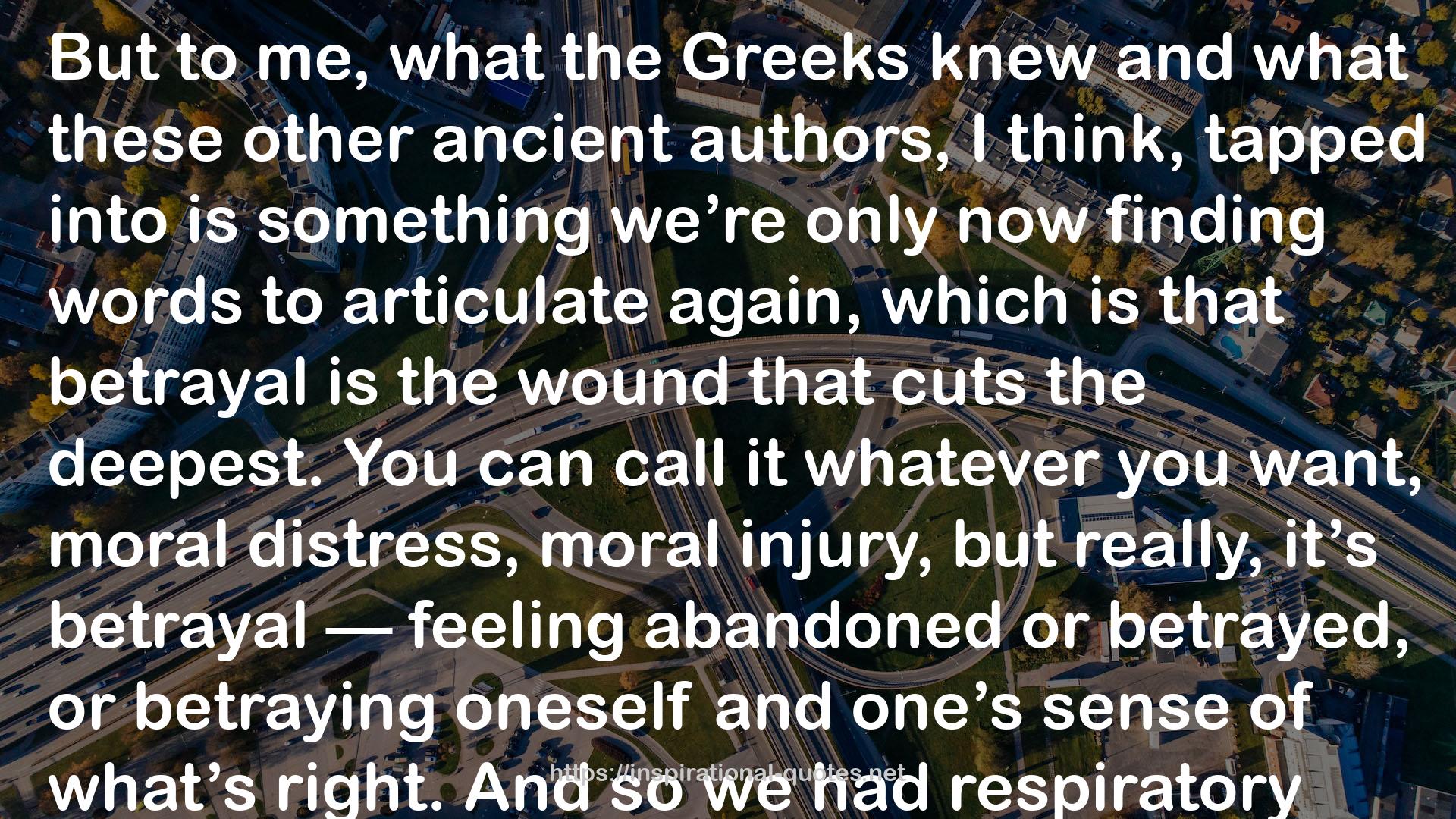" But to me, what the Greeks knew and what these other ancient authors, I think, tapped into is something we’re only now finding words to articulate again, which is that betrayal is the wound that cuts the deepest. You can call it whatever you want, moral distress, moral injury, but really, it’s betrayal — feeling abandoned or betrayed, or betraying oneself and one’s sense of what’s right. And so we had respiratory therapists in some of our early performances during the pandemic, who were saying, “I have 20 patients on respirators in the public hospital in the Bronx, and there’s only me, and I’m left with the guilt of not being able to attend to them all.”
That’s an impossible situation. So you call that person a hero, when they’re wrestling with their own sense of betraying their own standards of care and being betrayed by the system that put them in that position, and it could actually hurt them. "
― Bryan Doerries
Image for Quotes

